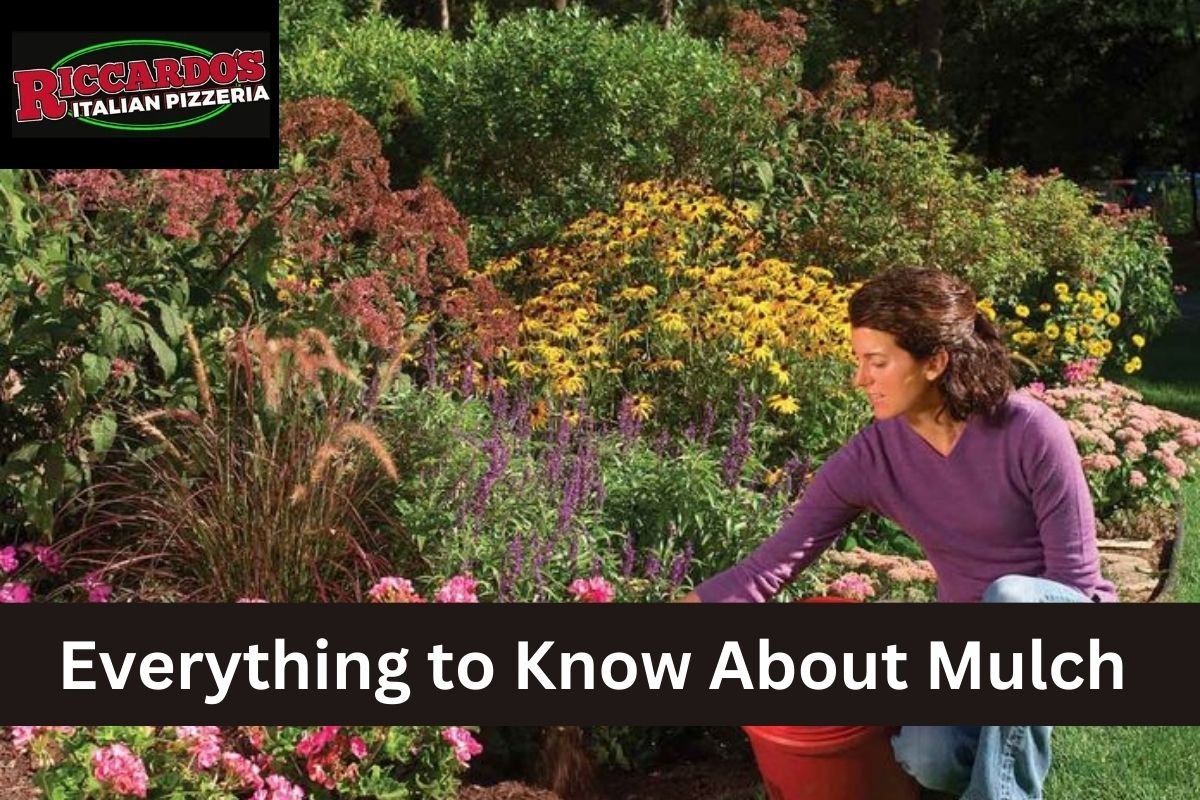Everything to Know About Mulch :- Mulch gives plants and soil a lot of advantages, hence it is a necessary part of landscaping. This thorough tutorial will teach you all there is to know about mulch: With so many benefits for soil and plants, mulch is a necessary component of gardening and horticulture. This page gives you a thorough rundown of all mulch-related information:
Everything to Know About Mulch
With so many benefits for soil and plants, mulch is a necessary component of gardening and horticulture. This page gives you a thorough rundown of all mulch-related information: Mulch gives the soil and plants several advantages, hence it is a necessary part of gardening and horticulture. This page offers a thorough explanation of every important mulch-related topic:
Also Read :- How To Grow Ferns Indoors – Bringing Ferns Inside As A Houseplant For Winter!
Mud that is inorganic
Gravel and stone are both long-lasting and attractive materials that are ideal for use in paths and around plants that are permanent. Weeds can be effectively controlled with plastic and landscape fabric, but these materials can also block the movement of water and air to the soil. Rubber Mulch is not only long-lasting but also suitable for use in playgrounds and pathways because it is made from recycled tires.
The Advantages of Mulch
Retention of Moisture Mulch helps to retain soil moisture by minimizing evaporation, which is an important factor to consider during situations of drought.
A thick layer of mulch filters sunlight, which prevents weeds from germinating and growing. This is an effective method for weed suppression.
Regulation of Temperature Mulch acts as an insulator for the soil, allowing it to remain warmer during the winter and cooler during the summer. Over time, organic mulches decompose, hence contributing organic matter and nutrients to the soil. This results in an improvement of the soil.
A reduction in soil erosion brought on by wind and water is one of the benefits of using mulch. Aesthetic Appeal: Improves the visual appeal of landscapes and gardens by using a variety of colors and textures.
Applying Mulch on the Ground
As part of the preparation, remove any weeds and debris from the area before applying the mulch. It is because of this that the mulch is able to efficiently reduce weeds and does not contain plants that are not desired.
Mulch should be used in a layer that is between two and four inches thick. When it is too thin, it will not be effective; when it is too thick, it can smother the roots of the plant.
The placement of mulch You should keep mulch a few inches away from the stems and trunks of plants in order to prevent rot and problems with pests. The effectiveness of organic mulch can be maintained by replenishing it on an annual basis or as needed. This is because organic mulch decomposes over time.
Figuring Out Which Mulch Is Best
The selection of mulch is determined by the requirements of the garden as well as the individual’s desire: To cultivate vegetable gardens, you might make use of grass clippings, compost, or straw. In addition to enhancing the soil, these mulches degrade very quickly.
The addition of wood chips, bark, or leaf mold to flower beds not only adds aesthetic value but also gradually enriches the soil. Pine needles are an excellent choice for acid-loving plants since they contribute acidity to the soil. Gravel and stone are examples of inorganic mulches that are long-lasting and require little maintenance when used in permanent landscapes.
The Possibile Shortcomings A number of organic mulches have the potential to attract pests such as termites and slugs from time to time. Nitrogen Depletion: As organic mulch breaks down, it has the potential to temporarily lower the levels of nitrogen in the soil, which can have an impact on plant growth.
Nitrogen fertilizer can be used as a supplement to help reduce its effects. Grass clippings and mulches with a fine texture can mat down, which reduces the amount of water that penetrates the soil and the amount of air that flows through it.
Methods of Mulching That Are Friendly to the Environment
Make Use of Local Materials: Reducing the impact of transportation and supporting local industry can be accomplished by using mulch that is sourced locally. As a means of reducing waste and enhancing the quality of your soil, you can recycle yard trash by turning branches, grass clippings, and leaves into mulch.
Conclusion:
Mulch has the ability to enhance and enhance the appearance of any garden or landscape. By using the appropriate kind, you will be able to reduce the amount of moisture that is lost, make your outdoor areas more aesthetically beautiful, and keep weeds under control. In the event that you take care of your garden on a consistent basis and select mulch with care, it will flourish throughout the entire year.
